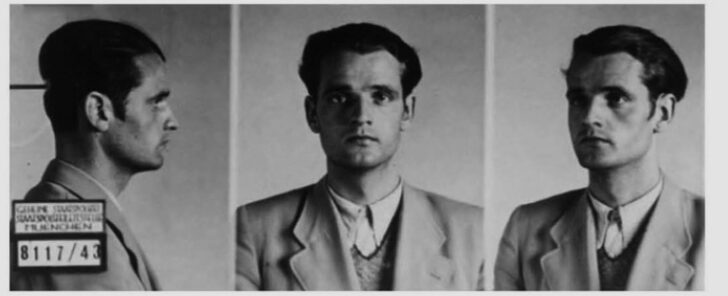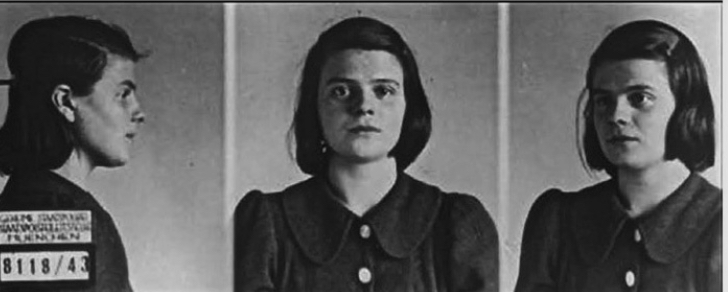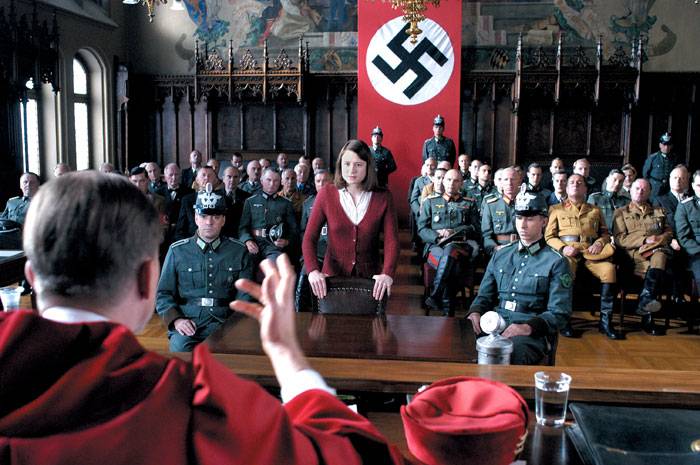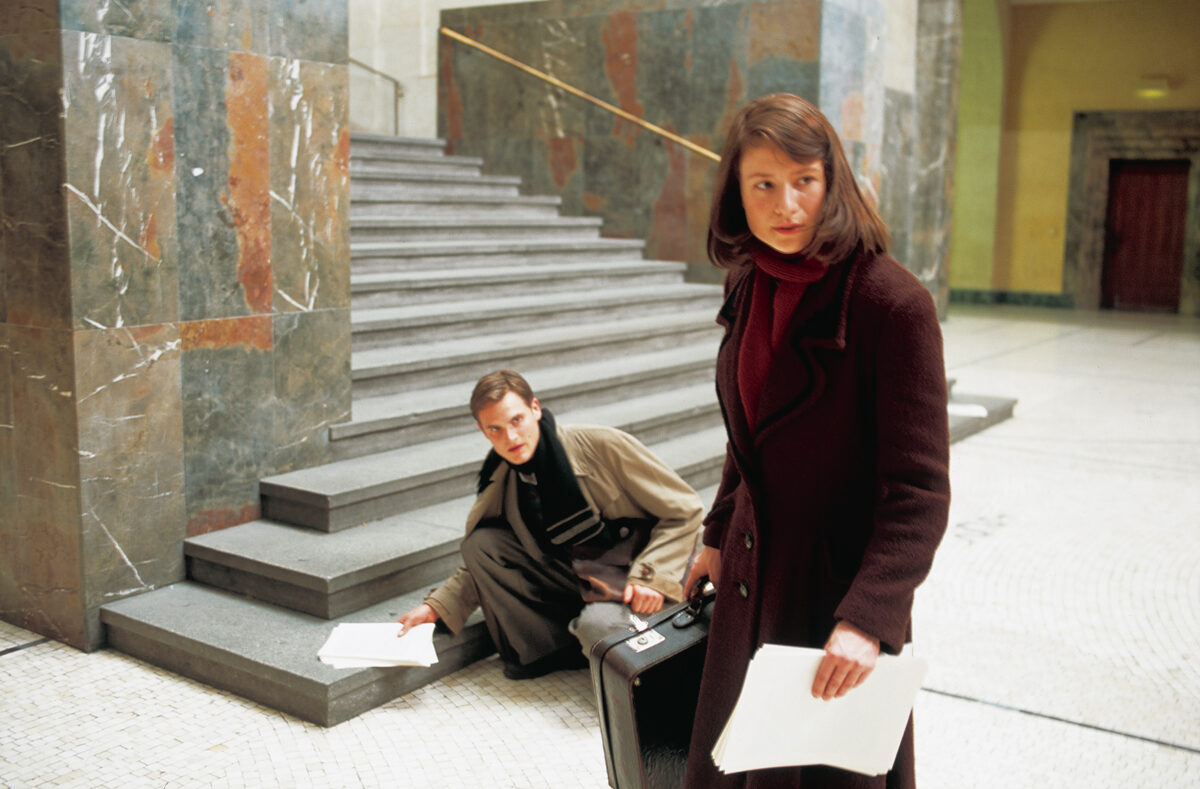Nearly 80 years have elapsed since the execution of Sophie Scholl, the courageous German political activist who sought to topple Adolf Hitler’s Nazi regime. Hailed as a heroine in contemporary Germany, she was a member of White Rose, a small but militant organization, based in Munich, that conveyed its pointed messages of resistance through trenchant pamphlets usually sent by mail.
Marc Rothemund’s captivating movie, Sophie Scholl: The Final Days, is set in the winter of 1943, shortly after Germany was defeated by the Red Army at the pivotal battle of Stalingrad. Available for viewing on the ChaiFlicks streaming service, the film recreates the last week of her abbreviated life.
She and her brother, Hans, a medical student and a soldier, were arrested after distributing a White Rose pamphlet at a university in Munich at which they were students. Caught due to a careless mistake on Sophie’s part, they were hustled to Gestapo headquarters and mercilessly grilled until they admitted their “guilt.”
They were incarcerated shortly after Propaganda Minister Joseph Goebbels delivered his infamous “total war” speech in Berlin. Sophie (Julia Jentsch) was interrogated by Robert Mohr (Alexander Held), a seasoned criminologist and an avid Nazi. Rothemund focuses almost entirely on this dimension of her ordeal. The interrogation that unfolds before our eyes is based on transcripts found in an archive in what was then East Germany.

Sophie tried to convince Mohr that she was apolitical and innocent of the charges brought against her. Unconvinced by her story, he continued prying information out of Sophie, warning her that she and Hans had committed “high treason” and faced the death penalty. Sophie finally fessed up after being told that Hans (Fabian Hinrichs) had confessed.

Sophie shared a cell with Else (Johanna Gastdorf), a communist who fervently believed that Germany would be liberated of the Nazi scourge.

Having broken through the chinks of her armour, Mohr tried to force Sophie into providing him with further information regarding White Rose’s membership and financing. He urged her to cooperate in the name of saving her family from “shame.”
The verbal jousting between Mohr and Sophie is never less than combative and vivid. Claiming that Hitler is protecting Germans and freeing Europe of Bolshevism, he lambastes her “false ideas.” By way of retort, she says that she is following her conscience, and declares that Germany will be “disgraced” if the Nazis are not removed from power. Jentsch delivers a low-key but emphatic and sensitive performance as Sophie.
Mohr clearly respects Sophie’s resolve and intelligence, but he’s not dissuaded by her arguments. The “new Europe,” he claims, can only be National Socialist.
Decrying racial hatred, Sophie complains that her Jewish teacher in Ulm, her hometown, was savagely humiliated. Mohr deflects her comment by falsely claiming that Jews are emigrating from Germany. She returns to the topic at hand by saying that Hitler has built concentration camps and intends to exterminate the Jews of Europe.
And in a rebuke to Nazi racial theories, she asks Mohr a provocative question: “How can you believe the Jews are different than we are?” To which he responds in typical Nazi fashion, “That mob brought us misfortune. You are confused.”
In her uninhibited style, Sophie decries the Nazi policy of euthanasia, which doomed the mentally and physically unfit. Mohr seems prepared for her denunciation. “You have to realize a new age has dawned,” he says, ignoring her admonition.
In an attempt to save her from the execution chamber, Mohr asks Sophie to repudiate her ideas. Rejecting his suggestion, she maintains she acted in the best interests of the German people and will accept the consequences of her actions.

Within hours of her last interrogation session, Sophie and her co-defendants were put on trial in a kangaroo court presided over by Roland Freisler (André Hennicke), a shrill bully and a fanatical Nazi. In the face of his intimidating tactics, Hans and Sophie valiantly defended their ideas, probably realizing that they were sacrificing their lives for a noble cause and that the guillotine awaited them.
Sophie Scholl: The Final Days takes us back to that horrible place and time and reminds us that freedom and liberty are precious gifts that an evil totalitarian state can snatch away in an instant.
